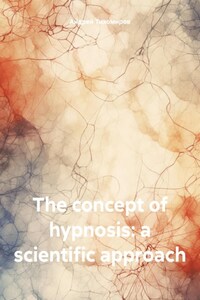The concept of hypnosis: a scientific approach
Автор книги - Андрей Тихомиров. Произведение относится к жанру развитие психики. Оно опубликовано в 2024 году. Книге не присвоен международный стандартный книжный номер.
Hypnosis is a human state that involves focused attention, decreased peripheral awareness, and an increased ability to respond to suggestion. During hypnosis, a person's attention and concentration increase and their response to suggestions increases. Hypnosis usually begins with a hypnotic induction, which includes a series of preliminary instructions and suggestions.










